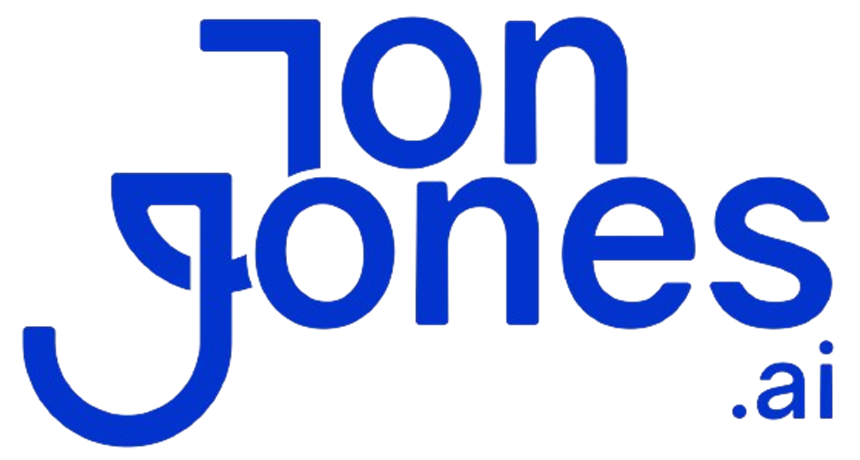Ever feel stuck watching AI pilots (small test projects using algorithms that forecast outcomes) fizzle out? You’re not alone. Right now, 49% of tech leaders weave AI into their core plans, and those with a clear AI strategy start seeing real wins faster.
That’s where AI strategy consulting (expert help to align AI projects with your business goals) makes a real difference. We guide you from proof-of-concept (your first basic demo) to live systems that cut costs and boost revenue. Now, we’ll share five ways this expert guidance powers rapid growth so you can skip the guesswork and hit measurable results.
AI Strategy Consulting: Aligning AI Initiatives with Business Objectives

AI strategy consulting helps you tie your AI projects to real business goals – you know, so every step moves the needle. We start with an AI maturity assessment (a check of your data, tech, and skills) to spot gaps.
Then we shape a plan unique to your needs, cutting the risk of pilots that never take off. Think of it like using a GPS. Nice. It guides you from your first proof-of-concept to a smooth full rollout.
AI strategy consulting is on the rise. About 49% of tech leaders say AI is fully part of their business plans. Deloitte predicts 25% of companies will run AI agents (software programs that act on your behalf) this year. You see companies chasing smarter workflows and faster decisions? No more guesswork, just targeted automation.
Our core AI consulting services cover everything from high-level strategy to hands-on tech setup. You’ll get:
- Executive workshops to align your leadership team around clear goals
- A step-by-step AI adoption roadmap, complete with milestones and timelines
- A technical review of your current systems to spot outdated tech
- Data audits to make sure you meet quality and privacy standards
This mix of planning and engineering keeps you on track. No half-baked pilots that fade away.
We deliver a strategic plan, prioritized use cases, and a dashboard with ROI metrics you can track. Then you’ll see projected cost savings, revenue lifts, and efficiency gains at each milestone.
We check in regularly, so the plan grows with your business. That focus on real value means your AI budget pays off in measurable results, not just buzzwords on a slide deck.
AI Strategy Consulting Phase 1: Assessing AI Maturity and Organizational Readiness

Ever felt swamped, you know, trying to weave AI into your daily workflow? We start with what we call an AI maturity assessment (a quick look at your data, tech setup, and team skills).
Think of it like mapping a road trip before you hit the gas. We use a simple framework to measure both your technical health and your team's readiness.
Here’s what we look at:
- Compute power (CPU, the main processor, and GPU, the graphics processor, capacity, plus storage and network speed)
- Data strategy (how info flows and breaking down data silos, info stuck in separate systems)
- Privacy compliance (GDPR, EU data law, and California Privacy Act, California state data law)
- Culture and skills (leadership support and your team's AI fluency, comfort with AI basics)
- Governance (policy readiness, executive sponsorship, leadership buy-in, and risk oversight)
After that, we’ll send over our findings along with a clear, custom action plan. You’ll see which workloads need more muscle, where your team can use hands-on training, and which policies need tightening. Next, we go for the quick wins, so you start seeing value fast and build on systems that grow with you, not one-off pilots that fizzle out.
Results matter.
AI Strategy Consulting Phase 2: Developing an AI Adoption Roadmap with ROI Forecasting

We’ll build a clear AI adoption roadmap that guides every step from a small pilot to a full launch. First, we rank your use cases with ROI forecasting (a simple model that predicts your earnings or savings). That way, we put your time and budget where you’ll see the biggest wins.
Next, we create a proof of concept (a test model) to make sure it fits your tech and adds real business value. Then we map out milestones, pick core tools, and set timelines. The plan is visual, so your team and leaders always stay on the same page.
This roadmap also helps keep executives in the loop. They can spot quick wins early on and track long-term impact, nice and simple.
| Milestone | Timeline | Deliverable | ROI Metric |
|---|---|---|---|
| Use case prioritization | Weeks 1–2 | Ranked use case list | Projected revenue uplift |
| Proof of concept | Weeks 3–6 | Pilot model | Cost reduction % |
| Infrastructure setup | Weeks 7–9 | Tech environment | Deployment speed |
| Full rollout | Months 3–6 | Enterprise AI | Efficiency gain % |
Once your AI adoption roadmap is in place, you use it like a playbook for a phased rollout. Each milestone ties to a custom business case, so you compare projected ROI against real outcomes. We track progress with our ROI forecasts, keeping cost savings and revenue gains crystal clear.
Your team stays aligned because they see progress markers and only scale up when the metrics make sense. That lean proof of concept stage helps avoid wasted efforts on low-impact pilots. And regular check-ins let leadership see how each phase lifts efficiency or revenue. In the end, the roadmap drives smart, data-driven decisions every step of the way.
AI Strategy Consulting Phase 3: Technology Selection and Infrastructure Planning

We’ll kick off by choosing the right tech mix: cloud services, on-site servers, or a hybrid setup. You’ll weigh performance needs, data security, and budget to find your sweet spot.
Cloud-based deployment (using online servers) gives you elastic resources without big upfront hardware costs. You tap into extra compute when you need it, nice, right? But that means relying on vendor service agreements and monthly fees.
On-site servers dive you into upfront hardware buys and in-house upkeep. You get full control over data, security, and custom hardware tweaks. But hey, it does demand your team’s time and cash.
Next, let’s size your system for peak loads: GPUs, CPUs, storage, and network bandwidth. Think modular microservices, each component runs on its own. Need more power? Just spin one up. We love containerization (packing apps into portable bundles) and orchestration tools (like Kubernetes) to keep everything humming during sudden spikes or busy seasons.
Finally, we’ll weave in your legacy systems so no one skips a beat. We map data flows between your ERP (enterprise resource planning), CRM (customer relationship management), and data warehouse before firing up AI pipelines. Lightweight APIs or middleware tie old and new together. Your team keeps using the apps they know, while AI quietly powers insights behind the scenes.
AI Strategy Consulting Phase 4: Governance, Ethics, and Compliance Frameworks

Think of AI (artificial intelligence) governance as our team’s playbook. We map out who owns each task, from model design to launch. Then we set up a lifecycle plan to keep everything on track. We also track key performance indicators (KPIs), like:
- cost-value ratio (how much bang you get)
- accountability levels (who signs off)
- algorithmic bias checks (measuring unfair treatment)
We weave ethics and bias checks into every stage of model development. Our explainability rule (lets you trace each decision back to its data source) keeps things clear. Before any model goes live, we run fairness tests across groups to avoid costly reputation hits.
Data rules shape how information flows and who can access it. We guide you through GDPR (General Data Protection Regulation for EU data) and CCPA (California Consumer Privacy Act). Next, we set clear policies for data retention, user consent, and audit trails so your process stays transparent and compliant.
AI risk management helps you spot threats early – whether it’s a tech glitch or an operational hiccup. We tie risk checks into your project governance with a steering committee and regular reviews. Then we add ongoing monitoring and audit trails so you catch model drift (when your AI starts to wander) or security gaps fast. You’ll keep projects on course and risks in check.
AI Strategy Consulting Phase 5: Organizational Change Management and Talent Strategy

We kick off organizational change management (helping teams embrace new ways) by mapping out everyone who’s affected and building simple communication plans. We bring your marketing, IT, and operations folks into the loop with regular check-ins and progress updates. That kind of clarity makes adapting to AI (artificial intelligence; computer systems mimicking human smarts) feel a lot less scary.
Next, we run executive AI workshops that feel more like labs than lectures. Your leadership team gets hands-on with the tools, talks through risks, and agrees on what success looks like. By the end, you’ve got a shared playbook, and cautious sponsors turn into active champions.
When it comes to talent, we zero in on the must-have roles:
• Data scientists
• Machine learning (ML; computers learning from data) engineers
• AI project managers
First, we do a skills-gap check to spot missing expertise. Then we build your hiring roadmap with role descriptions, interview guides, and competitive pay benchmarks.
Once your new hires are aboard, we boost their skills with tailored programs and cross-team squads. Custom workshops cover model basics, data ethics, and testing methods. Then IT developers, business analysts, and ops leads pair up on pilot projects.
Finally, we launch an AI center of excellence to capture best practices and share reusable assets. That keeps innovation humming long after the first rollout.
Results matter.
AI Strategy Consulting Phase 6: Scaling, Monitoring, and Continuous Improvement

After your initial rollout, we jump into spreading your AI tools across teams and departments. We make sure key steps look the same anywhere you use them and build reusable structures – think of them like Lego blocks your teams can snap together. Nice.
Then we set up monitoring (watching how things work) and maintenance (fixing problems). This helps track live and offline performance and spot model drift (when your model’s accuracy slips). Our program managers then help you allocate resources and merge AI growth with your daily workflows.
We design a continuous improvement system that keeps your AI learning and getting better. That system includes:
- Feedback loops from stakeholders (people invested in your results)
- Version control to track code changes
- Benchmarks to compare against your original metrics
Automated retraining kicks in when data patterns shift or accuracy drops below a set limit. It’s like scheduling a tune-up for your models so you avoid breakdowns and feed new insights right back into your AI pipeline.
Every step links back to a clear business metric so you see real impact. Track efficiency gains, revenue lifts, and happier customers on live dashboards and scorecards. You’ll know exactly which AI moves pay off and where to focus your next scaling push based on hard data.
Selecting the Right AI Strategy Consulting Partner

First, we focus on expertise and past wins. You’ll skim case studies to spot proven results in your industry. And don’t forget to ask about governance and compliance (rules and guidelines that keep your project safe and legal) so you avoid hidden risks down the road.
Next, let’s tackle cost. AI consulting often comes as hourly fees or flat bids. Rates usually run from $100–$500 per hour, and flat-price projects start at $5,000 and can top $100,000. Make sure you nail down:
- What’s included in support (response times, extra hours)
- Service-level agreements (SLAs) (details on uptime and fixes)
- Any extra fees if your needs change
That way, you won’t get surprise bills. To match budget with scope, compare AI implementation consulting services that fit your goals.
Finally, strong partnerships grow from co-innovation (working together on new ideas) and a shared vision. We recommend picking a team that maps AI tools directly to what you want to achieve and offers flexible engagement models. Custom solutions often deliver better ROI than off-the-shelf modules, especially when your challenges aren’t one-size-fits-all. Then set regular check-ins and agree on shared KPIs (key performance indicators) so you and your partner stay aligned.
Final Words
We kicked off with how AI strategy consulting aligns your goals and tech needs. Then we assessed your company’s data, culture, and readiness to find clear next steps.
Next, we mapped out a phased roadmap with ROI forecasts to stay on track. We chose the right platforms, set up governance, and built a change plan for your team.
We planned for scaling, monitoring, and picking a partner to support growth.
With AI strategy consulting at the core, you’re set to automate tasks, grow revenue, and watch your business thrive.
FAQ
What is an AI strategy consultant?
An AI strategy consultant helps organizations align AI initiatives with business goals by assessing readiness, prioritizing use cases, and crafting roadmaps that deliver measurable ROI and sustainable growth.
How much do AI strategy consultants make?
AI strategy consultants typically earn between $100,000 and $180,000 annually, depending on experience, industry, and geographic location. Top-tier consultants at leading firms can exceed this range.
What is the 10-20-70 rule in AI?
The 10-20-70 rule in AI allocates 10% effort to strategy, 20% to infrastructure setup, and 70% to data preparation and model training—ensuring a balanced focus on planning, tech, and data quality.
What are the 4 pillars of AI strategy?
The four pillars of AI strategy include maturity assessment, use-case prioritization, infrastructure planning, and governance frameworks. Together they guide organizations from readiness evaluation to scalable, responsible AI deployment.
Which firms lead AI strategy consulting?
Leading AI strategy consulting firms include Boston Consulting Group (BCG), McKinsey & Company, Accenture, Deloitte, IBM, Bain & Company, and specialized practices like BCG’s QuantumBlack.
Who is QuantumBlack in the AI consulting space?
QuantumBlack is BCG’s advanced analytics and AI specialist practice. It merges data science, design thinking, and industry expertise to deliver end-to-end AI strategy and implementation services.
Who are typical clients for AI strategy consulting?
Typical clients for AI strategy consulting range from startups and small businesses to large enterprises. They seek expert guidance to evaluate AI readiness, prioritize high-impact cases, and achieve measurable growth.
Where can I download the BCG AI report PDF?
You can download the BCG AI report PDF from Boston Consulting Group’s website under its insights section, typically available as a free, downloadable resource detailing AI trends and case studies.






